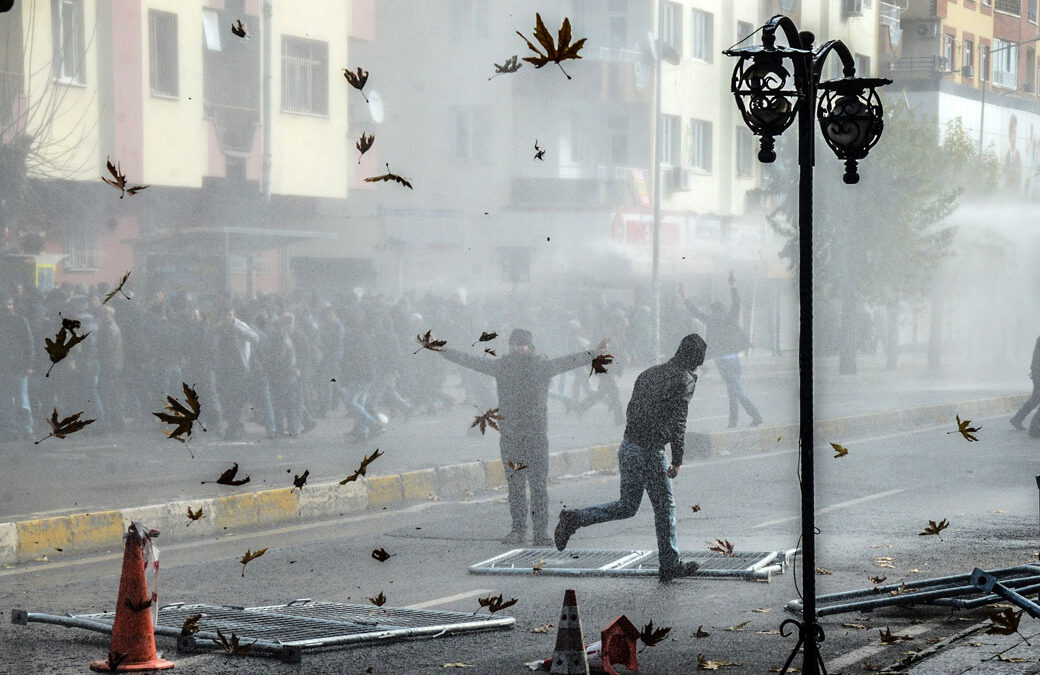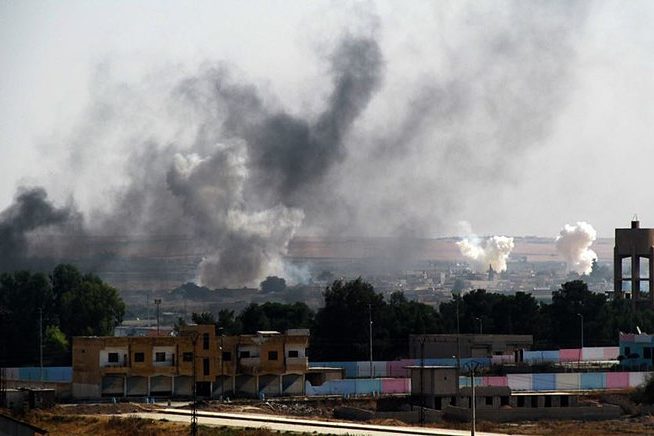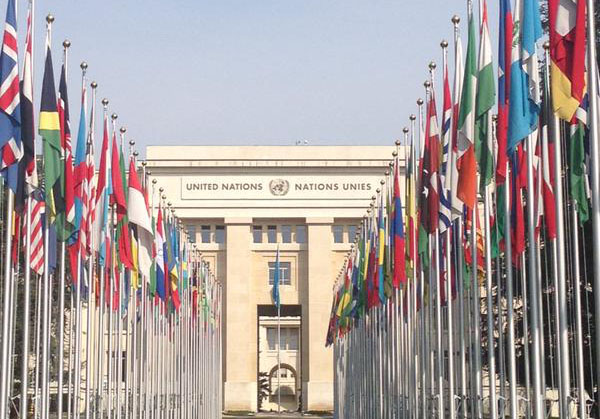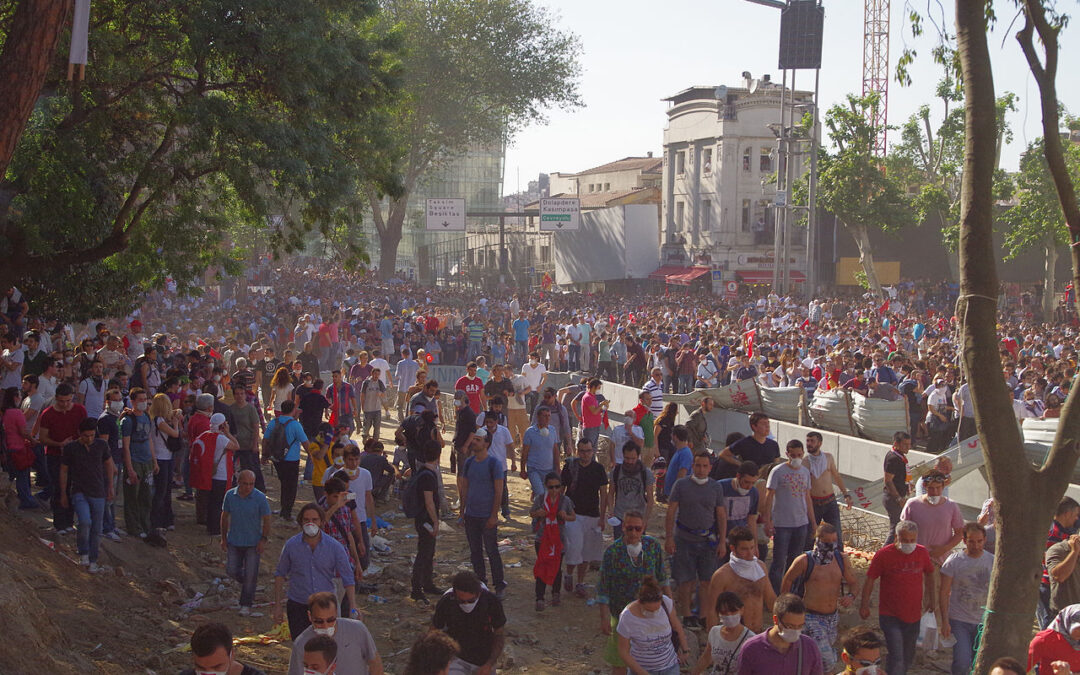
Oct 21, 2019 | News
The ICJ has condemned the arbitrary arrest of at least 186 individuals – 24 of whom are still detained solely for their opinions publicly expressed against the Turkish intervention in northern Syria. The ICJ calls for their immediate and unconditional release and for all charges against them to be dropped.
At least 186 individuals had been arrested by Turkish authorities by 16 October after publicly criticizing Turkey’s military intervention in northern Syria.
They are accused of “provoking the public to hatred and animosity”, “carrying out propaganda for a terrorist organization” and “openly degrading the State of the Republic of Turkey” as prohibited by Articles 216, 220, 301 and 314 of the Turkish Penal Code and Article 7/2 of Prevention of Terrorism Law. Further such arrests are reportedly continuing.
Moreover, an investigation was launched against Istanbul MP Sezgin Tanrıkulu, a member of the main opposition Republican People’s Party (CHP), due to his social media messages and statements. HDP co-chairs and MPs were also investigated over “terrorism links” for their statements on the Peace Spring Operation.
“The Turkish Penal Code and Prevention of Terrorism Law in particular with their overly broad definition of terrorism, place excessively restrictive limitations on the exercise of the right to freedom of expression protected under Article 26 of the Turkish Constitution and give law-enforcement bodies sweeping powers to proceed to arbitrary arrests,” said Massimo Frigo, Senior Legal Adviser of the ICJ Europe and Central Asia Programme.
The ICJ is concerned that these arrests have been undertaken in contravention of the right to freedom of expression under article 19 of the International Covenant on Civil and Political Rights (ICCPR) and article 10 of the European Convention on Human Rights (ECHR), treaties to which Turkey is party.
In particular, these restrictions do not appear to be necessary in a democratic society and proportionate, as required by international law.
Detention ordered in breach of these rights is also inherently arbitrary and therefore not in line with Turkey’s obligations to respect the right to liberty under Article 9 ICCPR and Article 5 ECHR.
“These prosecutions violate the Turkish Constitution and international law and should be immediately dropped”, said Massimo Frigo.
“As a priority identified in its Judicial Reform Strategy, Turkey must also quickly abrogate these criminal provisions that cause undue and arbitrary restrictions on freedom of expression,” he added.
The ICJ recalled that the Venice Commission, in its 2016 report, concluded that the provisions of the Turkish Penal Code under which they are charged “provide for excessive sanctions and have been applied too widely, penalizing conduct protected” under international human rights law.
Similar issues were identified last July by Turkey’s Constitutional Court regarding prosecution for terrorism propaganda, of signatories of a petition calling for peace (the “Academics for Peace” petition) in the southeastern part of the country.
The Constitutional Court ruled that the criminal proceedings violated the right to freedom of expression safeguarded by Article 26 of the Turkish Constitution.
Contact:
Róisín Pillay, Director, ICJ Europe Programme, t +32 476 974263; e roisin.pillay(a)icj.org

Oct 18, 2019 | News
The ICJ and the International Bar Association’s Human Rights Institute (IBAHRI) have jointly sent an international observer to attend the third hearing of the criminal trial on the “Gezi Park” protest at the Silivri Prison Courthouse in Istanbul, scheduled to take place on 18 October 2019.
The ICJ and IBAHRI observer will be monitoring a trial hearing before İstanbul 30th Assize Court with prinicipal defendant Osman Kavala, and 15 others; Ali Hakan Altınay, Ayşe Mücella Yapıcı, Ayşe Pınar Alabora, Can Dündar, Çiğdem Mater Utku, Gökçe Yılmaz, Handan Meltem Arıkan, Hanzade Hikmet Germiyanoğlu, İnanç Ekmekci, Memet Ali Alabora, Mine Özerden, Şerafettin Can Atalay, Tayfun Kahraman, Yiğit Aksakoğlu and Yiğit Ali Ekmekçi.
The observer will report directly to the IBAHRI and ICJ Secretariats on the proceedings following the mission.
The Gezi Park protests began in May 2013 as an effort by a group of environmentalists to save a park in central Istanbul from being rezoned, but soon turned into nationwide demonstrations.
The protest was quelled by police with the use of tear gas and water cannons against the protesters in Taksim Square. Following a six-year investigation into the events, the 657-page indictment issued by the Istanbul Chief Public Prosecutor’s Office was accepted by the 30th A Court in Istanbul on 4 March 2019.
The defendants are to be charged under Turkish Criminal Code Article 312 (attempt to overthrow the Turkish Government or attempt to prevent it from fulfilling its duties), Article 151 (damage to property), Article 152 (qualified damage to property), Article 174 (possession or exchange of hazardous substances without permission), Article 153 (damaging places of worship and cemeteries), Article 149 (qualified robbery), Article 86 (intentional injury); crimes under the Law on Firearms, Knives and Other Tools no. 6136, and crimes under the Law on Protection of Cultural and Natural Assets no. 2863.
Contact:
Massimo Frigo, Senior Legal Adviser, t: +41 22 979 38 05 – e: massimo.frigo(a)icj.org

Oct 15, 2019 | News
Today, ICJ called on Turkey to comply with its obligations under the UN Charter, international humanitarian law and international human rights law, immediately end its military operations in Syria, and protect and ensure the protection of the Syrian civilian population.
The ICJ also reiterated its call on all parties to the Syrian conflict to respect and comply with international humanitarian law and international human rights law.
On October 9, Turkey initiated operation “Peace Spring” in Rojava, the Kurdish-led Syrian Democratic Forces (SDF)-held territory in north-east Syria, with the stated aim of securing Turkey’s border, “fighting terrorism” and facilitating the return of refugees to Syria. Turkey claimed to be acting pursuant to its right to self-defence under article 51 of the UN Charter, as well as UN Security Council resolutions on the fight against terrorism.
The ICJ recalled that none of these UN Security Council resolutions authorizes the use of armed force in violation of international law, and that the UN Charter prohibits the use of armed force by States, save when authorized by the UN Security Council or in self-defence.
Use of force in self-defence is lawful only when necessary to repel an armed attack and when proportionate to such attack. Military operations failing to abide by such requirements are in breach of the UN Charter.
“Turkey’s military operations violate the UN Charter and exemplify how the banalization of the illegal use of armed force continues to erode and dismantle the very fabric of the international legal order,” said Said Benarbia, the ICJ MENA Programme Director.
He added, “Instead of standing by while international law is being violated, the UN Security Council must take swift, appropriate measures to address the situation and to restore and maintain international peace and security.”
While UN Security Council member States have failed to find an agreement on even a statement on Turkey’s military operations in Syria, Turkish military operations continue to have a devastating impact on the general population, including multiple civilian casualties, attacks against civilian objects, including medical facilities and water supplies and infrastructure, and the displacement of more than 150,000 people, mainly civilians.
Turkish forces and the Turkish-backed armed groups have allegedly been responsible for violations of international humanitarian law and international human rights law. Members of one of these groups, the Ahrar Al-Sharqiya, have been accused of the extrajudicial execution of at least nine civilians, among whom is Kurdish politician and women’s rights activist Harvin Khalaf; torture and other ill-treatment; kidnapping; and looting and seizure of private property.
Turkey’s Defence Ministry said 595 “terrorists” were “neutralized” since the start of “Peace Spring.”
Under international humanitarian law, parties to an armed conflict must respect and protect the civilian population, and refrain from any direct, indiscriminate or disproportionate attack against civilians and civilian objects. International human rights law also continues to apply during the conflict.
“Turkish authorities must investigate and prosecute unlawful killings committed in the context of operation “Peace Spring,” including extrajudicial executions amounting to war crimes,” Benarbia said.
He added, “If no action is taken by these authorities, States must act, collectively and individually, to hold to account all those responsible for such crimes.”
Contact
Said Benarbia, Director of the ICJ Middle East and North Africa Programme, t: +41-22-979-3817; e: said.benarbia(a)icj.org
Syria-Turkey operations-News-Press releases-2019-ARA (Arabic version, in PDF)
Syria-Turkey operations-News-Press releases-2019-TUR (Turkish version, in PDF)

Oct 12, 2019 | Agendas, Events
Today begins in Izmir (Turkey) a one-day workshop for lawyers and CSO practitioners on the use and strategies of UN mechanisms and of their decisions in domestic courts.
This event is organized by ICJ, in cooperation with its partners Kapasite Geliştirme Derneği and Human Rights Joint Platform, as part a/the EU co-financed project Rebuilding and Ensuring Access to justice with civil society in Turkey.
30 lawyers and civil society practitioners are taking part in the workshop on 12 October in Izmir.
The workshop aims at discussing the functioning of the UN human rights mechiansms (treaty bodies and charter-based bodies) as well as their follow up procedures and the implementation of their decisions in the domestic legal framework in Turkey.
The workshop will provide presentations on the functioning of UN mechanisms by international expert, including from OHCHR, on the value of UN decisions under Turkish law, as well as discussions and brainstorming on how to use UN decisions in Turkey.
The project is funded by the European Instrument for Democracy and Human Rights (EIDHR) of the European Union.
Turkey-Workshop-Agenda-UNmechanisms-Izmir-2019-eng (download the agenda in English)
Turkey-Workshop-Agenda-UNmechanisms-Izmir-2019-tur (download the agenda in Turkish)

Oct 8, 2019 | News
The ICJ and the International Bar Association’s Human Rights Institute (IBAHRI) have jointly sent an international observer to attend the third hearing of the criminal trial on the “Gezi Park” protest at the Silivri Prison Courthouse in Istanbul, scheduled to take place on 8 and 9 October 2019.
The ICJ and IBAHRI observer will be monitoring a trial hearing before İstanbul 30th Assize Court with prinicipal defendant Osman Kavala, and 15 others; Ali Hakan Altınay, Ayşe Mücella Yapıcı, Ayşe Pınar Alabora, Can Dündar, Çiğdem Mater Utku, Gökçe Yılmaz, Handan Meltem Arıkan, Hanzade Hikmet Germiyanoğlu, İnanç Ekmekci, Memet Ali Alabora, Mine Özerden, Şerafettin Can Atalay, Tayfun Kahraman, Yiğit Aksakoğlu and Yiğit Ali Ekmekçi.
The observer will report directly to the IBAHRI and ICJ Secretariats on the proceedings following the mission.
The Gezi Park protests began in May 2013 as an effort by a group of environmentalists to save a park in central Istanbul from being rezoned, but soon turned into nationwide demonstrations.
The protest was quelled by police with the use of tear gas and water cannons against the protesters in Taksim Square. Following a six-year investigation into the events, the 657-page indictment issued by the Istanbul Chief Public Prosecutor’s Office was accepted by the 30th A Court in Istanbul on 4 March 2019.
The defendants are to be charged under Turkish Criminal Code Article 312 (attempt to overthrow the Turkish Government or attempt to prevent it from fulfilling its duties), Article 151 (damage to property), Article 152 (qualified damage to property), Article 174 (possession or exchange of hazardous substances without permission), Article 153 (damaging places of worship and cemeteries), Article 149 (qualified robbery), Article 86 (intentional injury); crimes under the Law on Firearms, Knives and Other Tools no. 6136, and crimes under the Law on Protection of Cultural and Natural Assets no. 2863.
The total sentence asked for by the prosecution for these offences amounts to approximately 47,520 years imprisonment.
Contact:
Massimo Frigo, Senior Legal Adviser, t: +41 22 979 38 05 – e: massimo.frigo(a)icj.org









